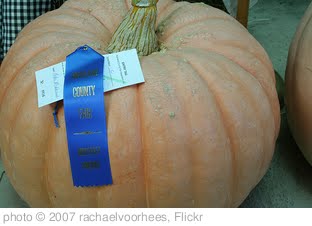These are the twelve themes or ideas or motifs that God has placed in my heart, and consequently the 12 Big Ideas that appear most often here on Semicolon.
1. Books. I have a houseful of books I read lots and lots of books, probably over 100 per year. I love books; I live inside books. I write about books here at Semicolon a lot. Some of my favorite booklists (may be helpful for last minute Christmas gifts?):
Reading Out Loud: 55 Favorite Read Aloud Books from the Semicolon Homeschool.
History and Heroes: 55 Recommended Books of Biography, Autobiography, Memoir,and History
Giving Books: Dystopian and Post-Apocalyptic Fiction.
Giving Books: FOr the nieces and other girls in your life.
Nine Series for Nine Year Old Boys.
Narnia Aslant: A Narnia-Inspired Reading List.
Books for Giving (to kids who want to grow up to be . . .)
Best Spine-Tinglers
Best Journeys
Best Laughs
Best Crimes
2. Family, particularly large families. I have eight children. Five are grown-ups, and three are still growing. Actually, we’re all still growing. I don’t write as much about my children as I do about my books, privacy and all that jazz. But having a large family and seeing God through the joys and difficulties of large family life is one of the major themes of my life.
3. Community. Through family, yes, but also through the church, the neighborhood in which I live, and even through the blog-world, the experience of community is very important to me. I’m interested in community as an ideal, and I’m also interested in little communities that form around hobbies, intellectual pursuits, ethnic identities, and other kinds of people-glue. I want to know how a subculture develops around a shared interest like bicycling or collecting butterflies or playing Scrabble (Word Freak by Stefan Fatsis) or any other random interest, how those communities work and how they coalesce, what the rules are and how they resolve conflict.
4. The Bible. God’s Word has been a part of my life since I was a preschooler, and my mother read to me from the book of Genesis. I still remember how exciting and suspenseful the story of Joseph was, and how I wanted to know what would happen next. I have read the Bible numerous times, studied it alone and in groups, and still I find treasure, hope, reassurance, and life in the words of history, prophecy, poetry, gospel, and letters in the Bible. The Bible is the central book in my life, by which standard all the many, many other stories that I read stand and fall.
5. Prayer. God is still working out this theme in my life. I’m 55 years old, and I still long to know what it means to really, really pray. If God knows and has preordained everything that happens, why pray? I think part of what it means is to communicate the desires and depths of my heart in language, that God-given means of communication and organization. If I can put my inchoate feelings and thoughts into words and tell them to a God who really, really cares, then I participate in the creation of meaning somehow. I participate in God’s work on earth through prayer.
6. Language. We create community through language. God communicates with us and we with Him, mediated by language. The Word became flesh. What does that mean? We are creatures who speak a language, and that means something. One of my life’s quests is find out what it means to be a language-using creation and how to use those words to communicate truth.
7. Story-telling. One theme leads to another: from books to the Bible, to prayer, to language, to storytelling. Maybe they are all one grand motif that defines how God is working in my life.
8. History. I love family history, especially my family history, but others, too, if they have stories to tell. History is the story of how God created, how He creates in the events of our lives, and what it all means.
9. Singing and Poetry. Music, in general is nice, but singing, alone or with other people, is what I most love, what makes me feel alive. That’s why I did the 100 Hymns series: I love songs with words and poetry put to music. This theme ties into my fascination with language and words, but the melody adds another dimension.
10. Homeschooling. Education in general is a theme in my family and in my life. I pray that I will be always learning, always educating myself and others about the wonderful world where God has placed us. I believe that as a family we were called to homeschool, not because homeschooling ensures God’s blessing or favor nor because homeschooling is always better than any other way of educating young people into adulthood, but rather because it fits with the other themes and concerns of my life: the community in family, the immersion in language and story-telling, the transmission of God’s truth to another generation.
11. Evangelism and missions. I grew up in a Southern Baptist church, in GA’s and Acteens, two SBC missions organizations for girls. I am still immersed in the idea of how the gospel is spread to other people and cultures and active in supporting missions and missionaries.
12. Jesus. Last, not because he is the least of my life themes, but rather because He is the foundation. If I wrote a book, Jesus would be the underlying theme, perhaps unnamed as in the Book of Esther, but always present, always at work, always the Rock upon which everything else rests. In Him, we live and move and have our being.
You can see these themes embodied in this list of 52 things that fascinate me. Now it’s your turn. What are the themes of your life? Where has God led you to focus your energies and talents? What is it that wakes you up in the morning, draws you into study and/or action, makes you who you are?
 IN APRIL
IN APRIL FROM AN APRIL
FROM AN APRIL



